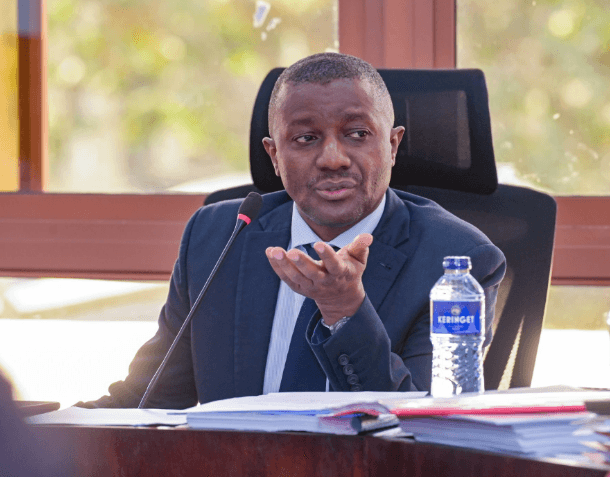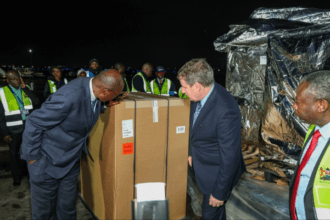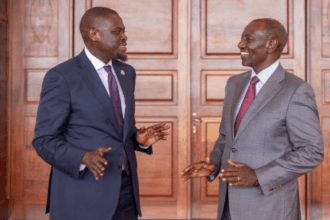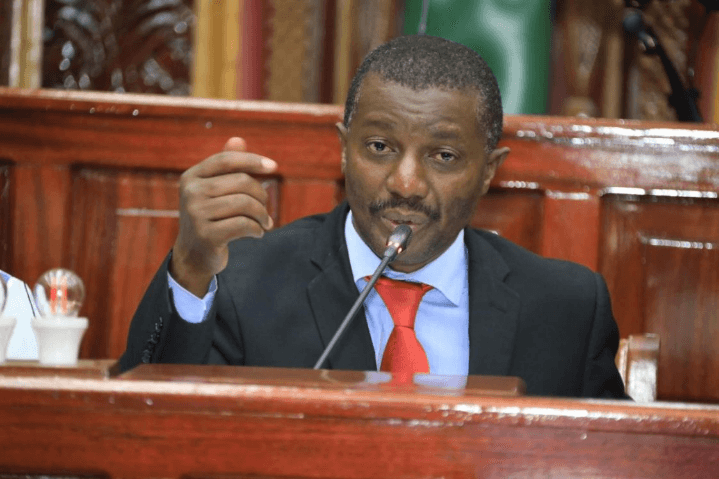
Makueni Senator Daniel Maanzo has stirred political waters with bold claims that President William Ruto was misled into signing the controversial agreement to deploy Kenyan police officers to Haiti. The deal, which has sparked heated national and international debate, involves Kenya leading a UN-backed multinational security mission aimed at restoring order in the gang-ravaged Caribbean nation.
In recent remarks, Senator Maanzo questioned the legitimacy and advisability of the deployment, suggesting that the president may not have been fully briefed on the legal, political, and security implications of the deal. According to Maanzo, the process was rushed and potentially influenced by foreign pressure rather than a clear national interest.
President Ruto was not properly advised. It appears he was duped into signing an agreement that does not reflect the will of Kenyans
Senator Daniel MaanzoThe senator’s concerns echo those of a growing number of lawmakers, legal experts, and civil society groups who have criticized the deployment as unconstitutional, poorly planned, and risky for the country’s security forces. Critics argue that the Kenyan government has failed to justify how the mission aligns with Kenya’s foreign policy priorities or how it benefits the country amid its own domestic challenges, including a strained economy and rising insecurity.
The Haiti Mission: A Quick Recap
The mission, greenlit by the UN Security Council in October 2023, designates Kenya as the lead nation in a multinational force tasked with stabilizing Haiti. The Caribbean country has faced spiraling violence, with gangs controlling large parts of the capital, Port-au-Prince, and a deteriorating humanitarian situation.
Kenya’s pledge to send 1,000 police officers has drawn both praise and criticism on the global stage. Supporters of the mission frame it as a bold step in African leadership on global peace and security. However, domestically, the move has met resistance.
Legal and Political Hurdles
Maanzo and other critics argue that deploying security personnel outside the country without parliamentary approval violates the Constitution. Several lawsuits have been filed in Kenyan courts seeking to block the deployment, with questions raised about transparency, preparedness, and whether Kenyan lives should be risked in a conflict so far from home.
Our officers are not peacekeepers trained for such missions. Sending them to Haiti without proper training, legal backing, or public support is reckless
Senator Daniel MaanzoGovernment Response
The Ruto administration has defended the move, calling it a humanitarian mission in line with Kenya’s commitment to global peacekeeping. Deputy president Kithure Kindiki and Foreign Affairs officials have maintained that the deployment is legal, necessary, and in Kenya’s diplomatic interest.
Still, opposition voices remain vocal, warning of a possible quagmire similar to past international interventions that yielded little stability but significant casualties.
Conclusion
As legal battles continue and public scrutiny intensifies, the Haiti mission has become a litmus test for President Ruto’s foreign policy direction and his government’s decision-making processes. Whether or not the deployment proceeds, the controversy has already sparked a broader conversation about Kenya’s role on the global stage and the importance of transparency, accountability, and national consensus in foreign engagements.





